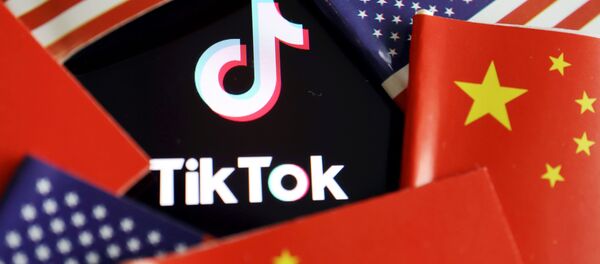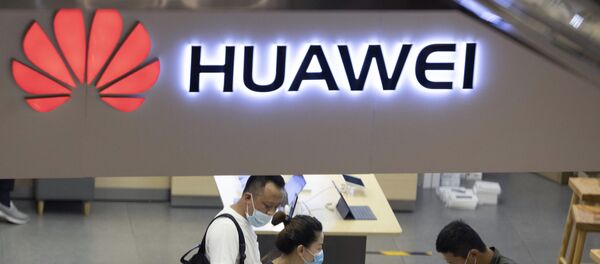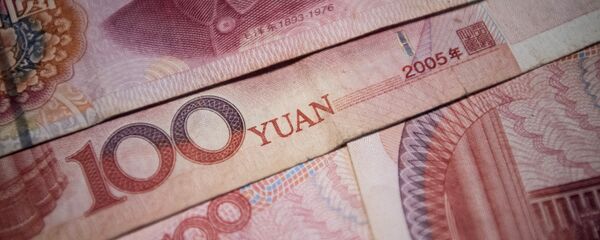According to Bloomberg, the meeting was held at the White House on 30 September. American officials noted that the expansion of Chinese payment services abroad carries national security risks. Payment companies naturally have sensitive financial and personal user data. Thus, Washington concludes that this data can become available to the Chinese authorities at any time.
At the same time, no specific legislative mechanisms have been developed yet to introduce relevant restrictions. But Bloomberg outlines three possible scenarios. The first is to issue a presidential executive order similar to the one that imposed restrictions on WeChat and TikTok. The second is to use the 2019 law on digital supply chain security. The third is to introduce sanctions against Chinese companies under the SDN blacklist (Specially Designated Nationals And Blocked Persons List – ed. note Sputnik).
The US government noted that in the case of WeChat and TikTok, the court referred to the First Amendment of the US Constitution protecting freedom of speech. But in the case of financial companies, it is no longer possible to refer to this law. Therefore, under the current circumstances, Donald Trump's administration is likely to take the same track and issue a new executive order. But even if this decree comes into force, it cannot be called a “nuclear” financial strike on Chinese companies.
Alipay and WeChat Pay have virtually a monopoly position in China's domestic mobile payments market. Last year, four out of five transactions in China were made through either of the two systems, while the total volume of these transactions exceeded $40 trillion. However, foreign markets account for a negligible share of the companies' total revenues. For Ant Group, the owner of Alipay, it does not exceed 5%. It is not difficult to calculate that the American market share is within statistical margins. Therefore, a US ban on Alipay or WeChat Pay would hardly affect these companies.
“The US's main goal in suppressing Alibaba and Tencent is to prevent the international expansion of Chinese payment platforms. After all, they are spreading quite quickly. As Chinese tourist traffic increases to East Asia, Europe and America, these payment platforms are increasingly being used abroad.”
Chinese payment services can be seen as a tool to directly support the yuan's internationalisation. More importantly, financial and personal user information, including that from abroad, is becoming available to Alipay and WeChat Pay.
“And the US believes this threatens national security. At the same time, data is indeed considered a key asset and information in such companies. So, if the US imposes appropriate sanctions, they will not be aimed at ruining the IPO, but at preventing the global expansion of Chinese fintech companies”, the expert said.
Notably, Bloomberg's leak about possible sanctions against Chinese companies took place ahead of Ant Group's planned dual IPO in Hong Kong and Shanghai. The company intends to raise up to $35 billion. In such a case it would be the largest IPO in history – even more than Saudi Aramco's $29 billion IPO. Washington believed that the news would bring down investor demand for the company's securities. However, this did not happen.

The risk of sanctions is much greater for American funds. In 2018, Silver Lake Management LLC, Warburg Pincus LLC and Carlyle Group Inc. invested at least $500 million in Ant Group. And in the event of sanctions, it is these companies that may have issues with their return on investment.
At the moment it is difficult to accurately estimate the damage for the Chinese fintech giants. After all, it is not known whether there will be any sanctions, and if so, which ones will be imposed. However, it is clear that uncertainty is growing in the global financial system, which in itself is a serious risk. That is why China now needs to concentrate on improving its financial system, solving existing problems and integrating into global finance, expert Liu Dian said.
“We now need to improve our financial system. There is still much to strive for in terms of improving the conditions for the development of financial technologies and the institutional construction of financial systems. It is important to increase our connectivity with the global financial system.”
According to the expert, most of the revenue of Chinese financial companies is now generated in the domestic market and the yuan’s internationalisation is still at the initial level.
“In recent years, due to the changing global political environment, the speed at which political risks are spreading has exceeded our expectations. Especially as we are under constant US pressure. Chinese companies must strengthen risk management mechanisms, including for international political risks”, Liu Dian said.
The five largest US banks have businesses in China, which are estimated to total about $70 billion. And that's just a small part of what the Chinese financial market has to offer in the volume of $45 trillion. It is no surprise that Goldman Sachs and JPMorgan announced plans to increase their stakes in Chinese joint ventures. The sanctions could undermine Visa and MasterCard's plans to enter the Chinese market, which would be particularly frustrating for them, as the companies have been seeking long-awaited approval for many years. And American Express, which was the first American payment system to enter the Chinese market, will not be rejoicing either.
In a country where there are almost 900 million active mobile payment users, it is obvious that depriving a customer of this option means losing everything. But more importantly, each time the US abuses sanctions pressure, it signals to what extent the current financial system aims to serve Washington's own interests. The same question is increasingly being asked in many countries: how safe and far-sighted is it to rely on the American financial system?







